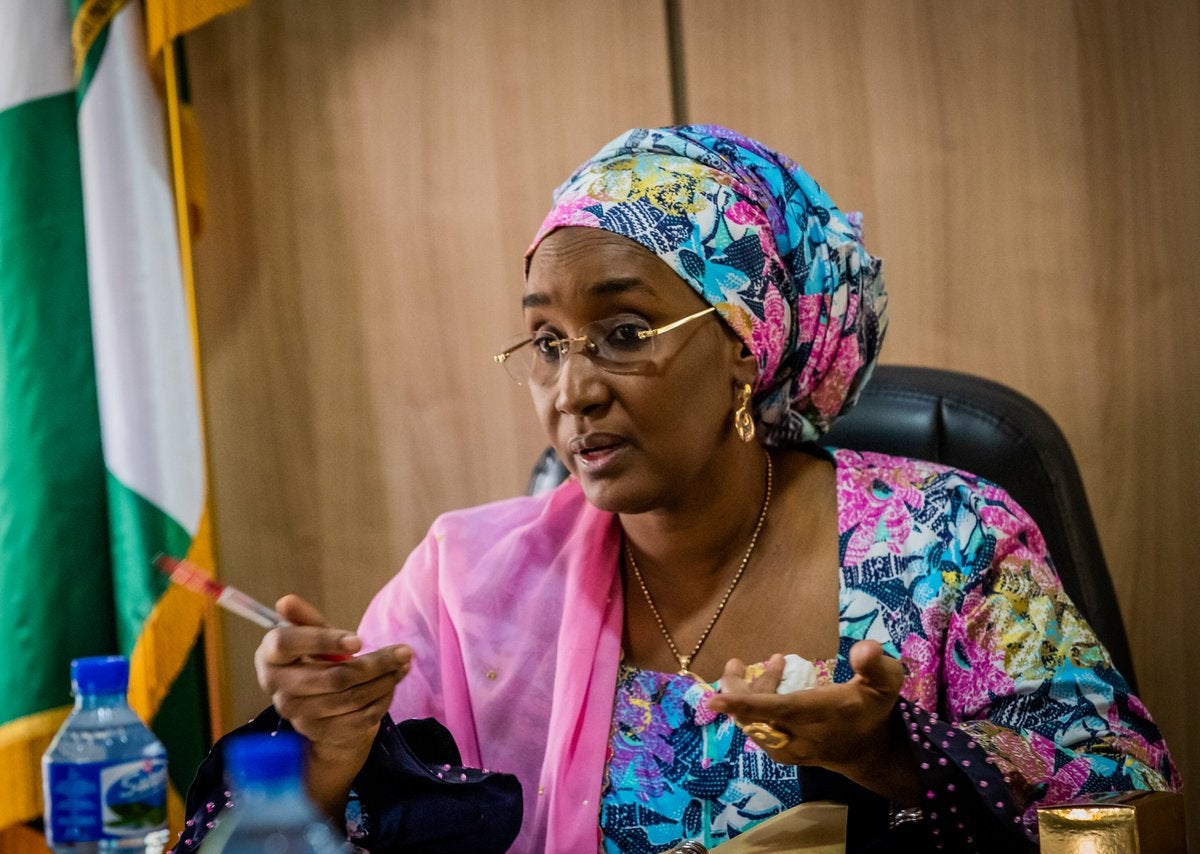
Minister of Human Affairs, Disaster Management and Social Development, Hajia Sadiya Umar Farouk, has dismissed as an “elitist statement” that the Federal Government’s N5,000 monthly national conditional cash transfer is insufficient to lift vulnerable Nigerians out of poverty.
According to her, the government has discovered through direct contact with the beneficiaries that the money has helped the poor and vulnerable of society to escape from their dire situation even as some have been able to save from the amount.
She spoke Thursday in Abuja during a ministerial media briefing organised by the Presidential Communications Team.
She stated: “If you look at the people that you are taking this intervention to, N5,000 means a lot to them because these are poor and vulnerable households and it changes their status, but for you and me, N5,000 is not even enough for us to buy recharge card, that’s the difference.
“But for these poor people in the communities, you have seen, they were able to save out of that N5,000, if it’s not making any impact, if it’s not changing their economic status, I don’t think anybody will force them to contribute that N1,000 to provide that vehicle for their use. So, N5,000 goes a long way.
“When people say N5,000 does not save people, that is an elitist statement, honestly because we’ve had causes to go to the field, and we have seen these people that when you give them this N5,000, they cried and shed tears because they’ve never seen N5,000 it in their lives.
“So, it goes a long way, it changes their status and by that, it lifts them from one stage to another.”
The Minister also said that the had discovered that the problem of out-of-school children is not just prevalent in northern part if the country, but a national malaise equally afflicting the southern States.
She spoke against the background that over 10 million out-of-school children in Nigeria are believed to be mainly in the north States.
She revealed that a recent survey in Makoko, Lagos, Enugu and Jos, revealed that the situation was more widespread.
While noting that the school feeding programmes have led to increased school enrolment, the Coordinator of the National Social Investment Programme (NSIP) Umar Bindir, who the minister directed to provide the figures, said there was the need to make people understand that it is a national problem.
He said: “Some people here, if you talk about out-of-school children, they think you are talking about almajiri in the north. Some people think it’s actually religious or a Muslim thing. But I can tell you in this programme, we have established it as a national issue.
“We sent a team to Lagos. They went to Mokoko, they met 7,000 out-of-school children picking things from the dirt. The guy came shaking. We sent another chap to Jos, he came shaking also. We sent another guy to Enugu, and for the first time, everybody realised that out-of-school children is a national problem.”
Speaking further on the exit programme for N-Power, which has become a source of controversy recently, the minister affirmed that government has a plan of putting about 300,000 applicants on a training programme while the Central Bank of Nigeria (CBN) will provide them loans.
She said: “On the N-Power programme we have 500,000 that have been on the programme with Batch A and Batch B being on the programme for four years and two years. Batch A was on the program for about four years and we were giving them N30,000 stipends monthly. And Batch B benefited for two years.
“So yes, the N-power beneficiaries have benefited because these are people who were not employed who had nothing to do, but were engaged and were being paid stipends to use to earn a decent living.
“On the exit programme. Yes, we have an exit strategy, which we partner with the Central Bank of Nigeria. And out of this 500,000, about 300,000 indicated interest to be put on an exit programme where you can be trained on different skills, skills of their choice, and they will be given loans by the Central Bank of Nigeria, for them to start their businesses.
“This we have gone far. We are in the process of training those that have indicated interest. And I’m sure before the end of this quarter, these people will be given these loans by the CBN. As a government agency the ministry, we do not give loans. So, we have to partner with those institutions that can do that.
“Unfortunately, some of these people were not very wise in their savings, but for anybody that’s really serious, most of them have saved. About 109,000 of the N-Power beneficiaries have become entrepreneurs. They are now employers of Labour and we have evidence of that which can be provided to you.
“This is a very laudable programme, and people have benefited and people are being supported. And we have an exit strategy. And we are on and it’s a continuous process.”



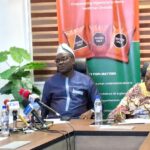









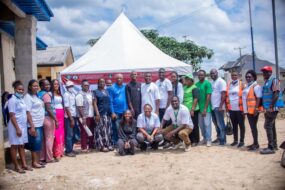
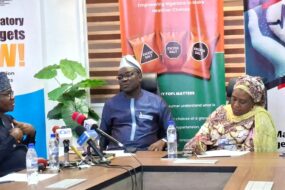
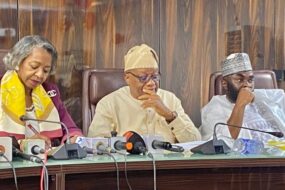

No Comments